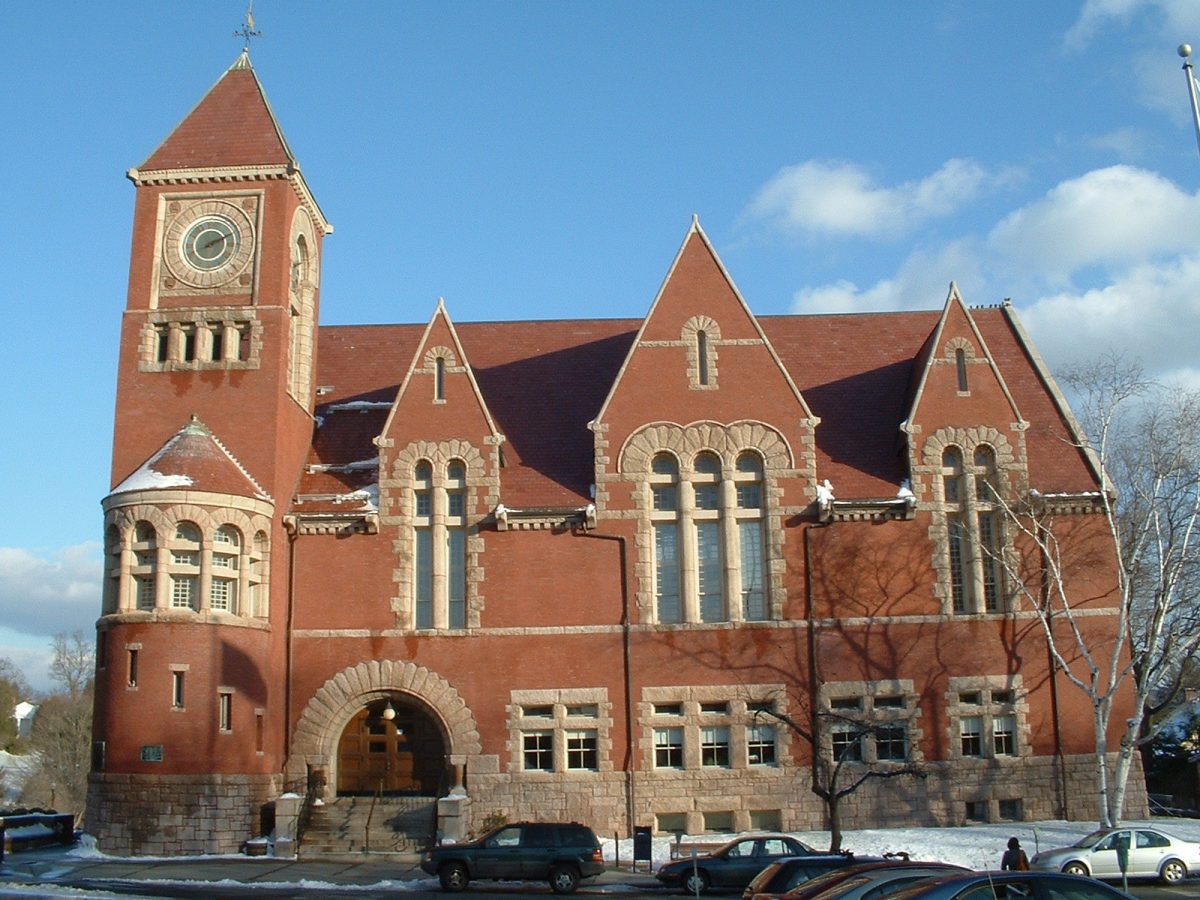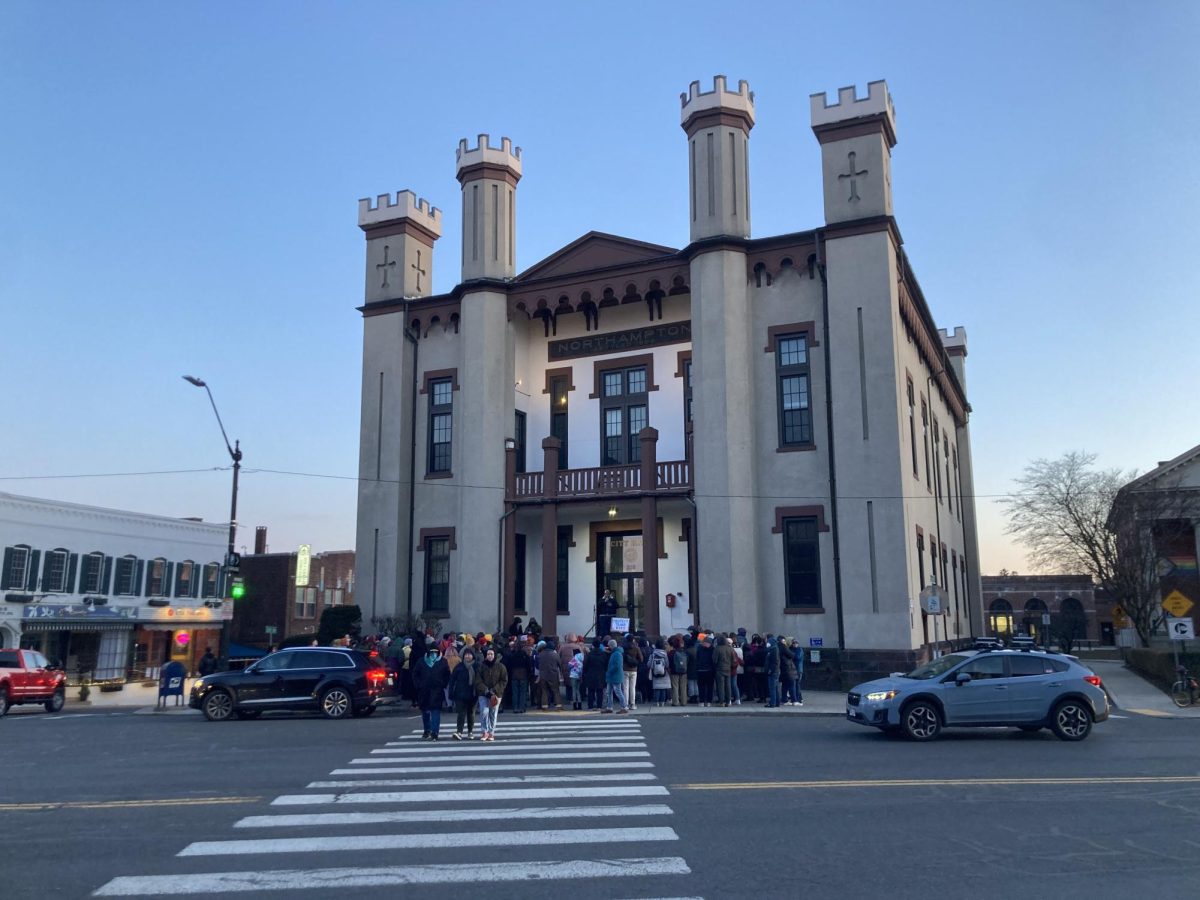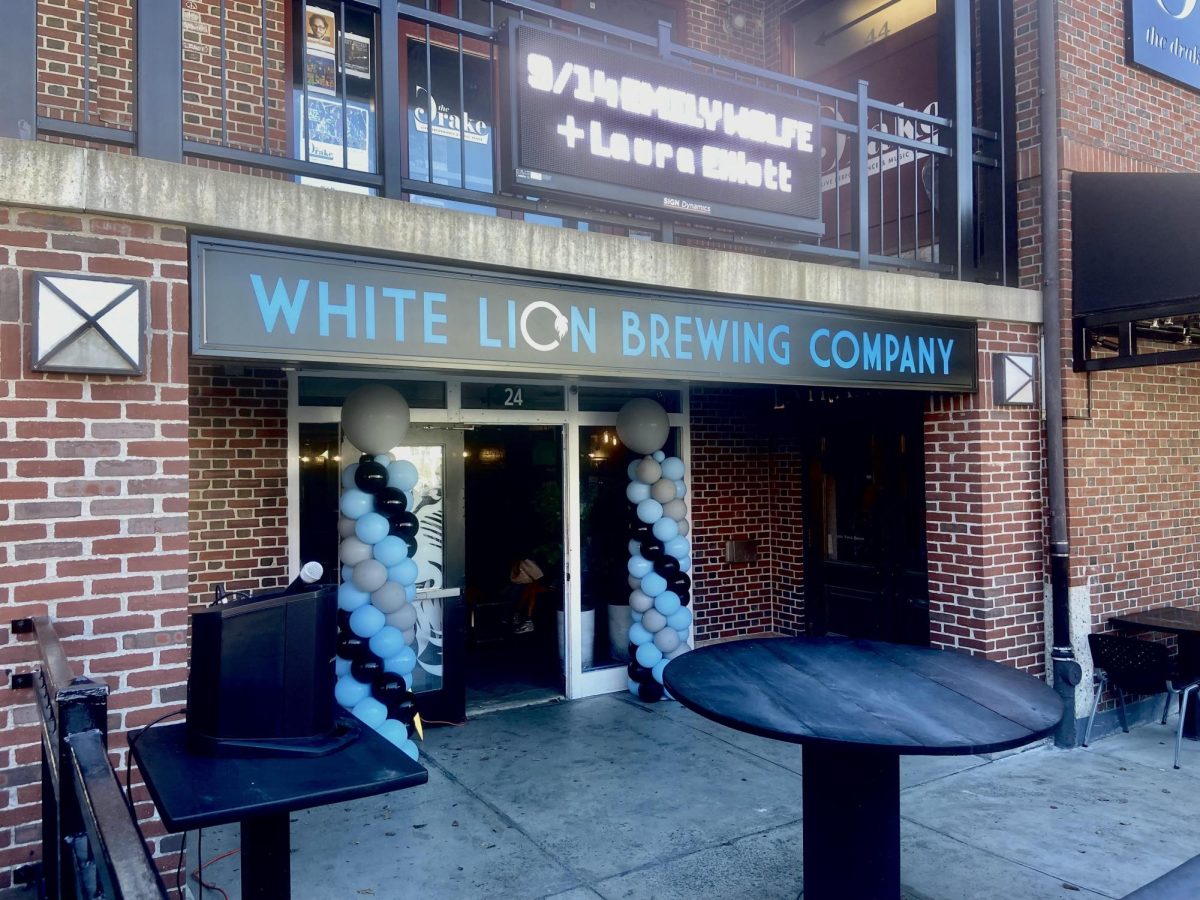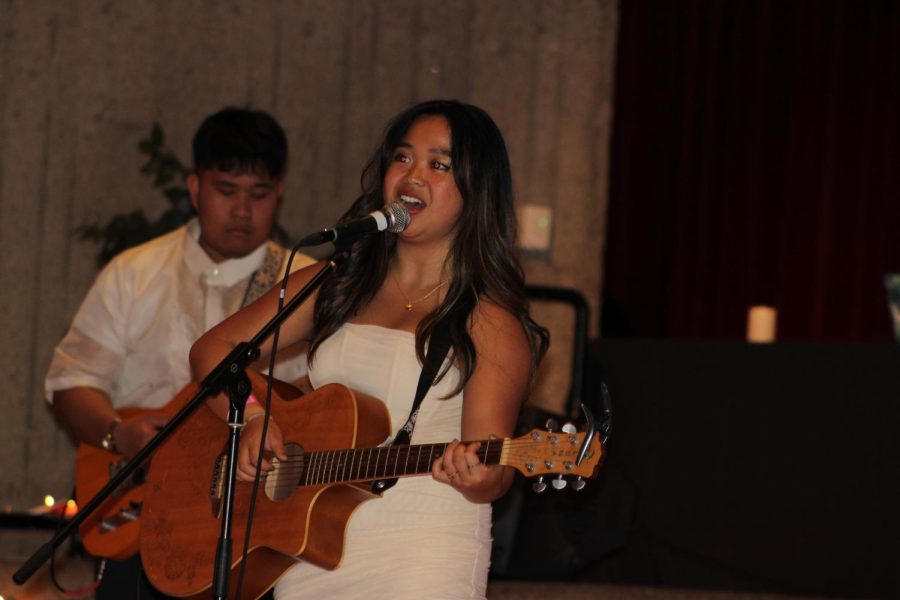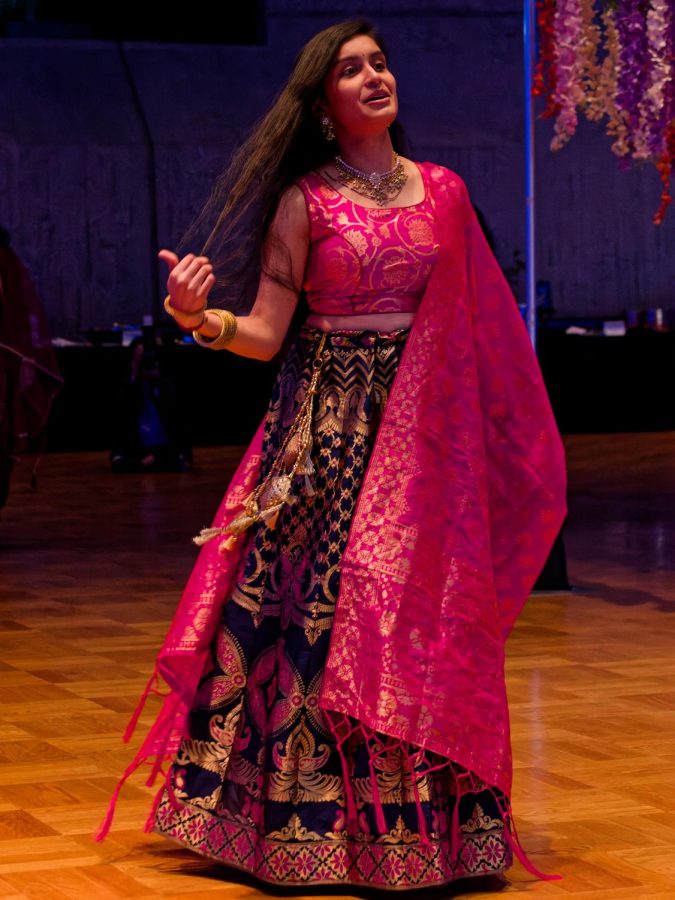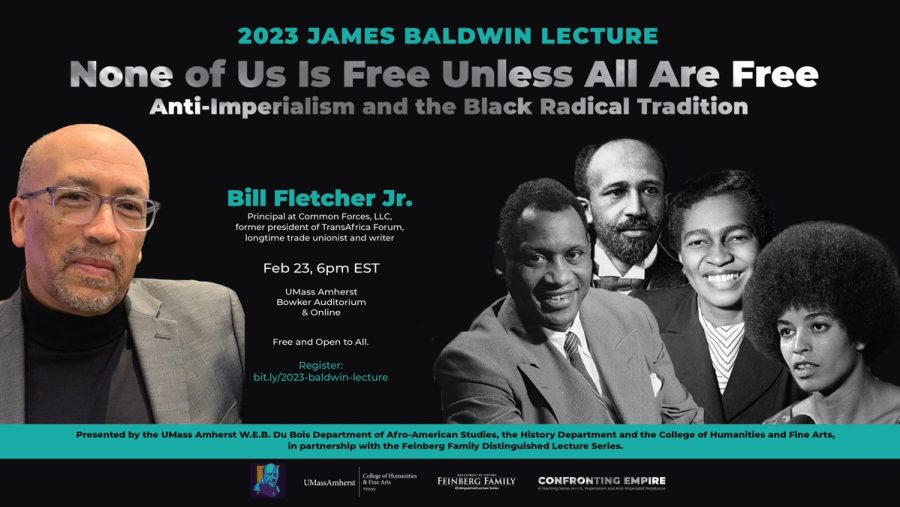
For historian Robin D.G. Kelley, the idea of American democracy has long been in decline.
Kelley, who currently teaches history at the University of California, Los Angeles, spoke Tuesday to a crowded room of about 130 people at the University of Massachusetts’ Cape Cod Lounge in the Student Union. His lecture “The Long Rise and Short Decline of American Democracy” addressed the political as well as social atmosphere in the United States during its periods of evolving democracy – and, he argued, its decline.
The talk pinpointed racial entitlement in voting, the constant amending of the United States Constitution and the lack of historical understanding taught in schools today as reasons for the decline.
“I’m really just beginning to think deeply about these things. I’m speaking more from a place of urgency and exuberance than a place of wisdom per say, and hope that this can start some conversations,” Kelley said, sporting a graying goatee and polka dot tie. “You have the greatest history department in the country … I’m almost embarrassed by stepping into territory that you all have mastered, so please, cut me some slack,” he added, invoking quiet laughter from the audience.
This particular lecture, Kelley said, was created from a “fit of frustration” he experienced during last year’s presidential elections – he wanted to explore the modern ideals of American democracy, which he began to think did not match up with its history.
“Part of what I would argue is, that what … democracy is, is not a thing but a process. The multiracial modern democracy that we imagine ourselves to be, that was a struggle,” he said.
Following a brief introduction by UMass professor and Director of the Public History program Marla Miller – who said “people’s excitement was palpable” when Kelley was announced as the history department’s 2013 writer-in-residence – Kelley began his talk with three short anecdotes of contemporary examples illustrating his points.
In his first anecdote, Kelley addressed the racial entitlement surrounding voting prior to the Voting Rights Act of 1965, a law that expanded voting rights to include the votes of black citizens.
“The civil rights movement was a struggle to actually create democracy in the United States, for everybody,” Kelley said.
Kelley said the Voting Rights Act of 1965, however, may have just been a point along the timeline of decline in American democracy.
“I want to remind us that the era we celebrate—the 1960s— actually represents something of defeat,” he said. He argued that later years in America would be characterized by things such as the dismantling of a welfare state, social wages and domestic policing surveillance.
The second anecdote described an instance in which his then seven-year-old son, upon coming home from school, told Kelley that a fellow peer had said “black people are only half human.” Confused and concerned, Kelley called the parents of the classmate and learned that their class had been shown a film about the Three-Fifths Compromise, in which, in 1787, delegates from southern states pushed in favor of counting slaves as part of the population to increase Electoral College votes but still denied enslaved African-Americans the right to vote.
Most students in the first-grade class had misunderstood the Three-Fifths Compromise, and Kelley proceeded shortly thereafter to visit his son’s first grade class to simplify and clarify this concept.
“It hit me just how little we know outside the halls of academe about how our presence of democracy came to be,” Kelley said.
In his final anecdote, Kelley recalled how American TV journalist Tom Brokaw “ruined” one Valentine’s Day. Filling the bathtub and lighting the candles, Kelley overheard Brokaw on a program saying that the Egyptian uprisings had failed to achieve the Jeffersonian democracy reflected in America.
Kelley argued that America is far from its days of Jeffersonian democracy, citing the many amendments to the Constitution that have been made since.
“We’re taught to see American democracy as a creed rather than a process … A creed that’s handed down to us from on high,” he said. “Politics, like anything else, is historically contingent and has to constantly be remade.”
Again, Kelley argued that democracy has been a long process in the making.
“The history is this: it’s constant struggle, struggle, struggle,” he said, adding that “most important architects of democracy” were those who could not enjoy it, such as slaves and minorities.
“I would argue that you would find the beginnings of social democracy in the Reconstruction period, and maybe not just in the United States, but in the world,” he said, adding, “I don’t accept the argument that the withdrawal of federal troops ended the period of Reconstruction.”
Democracy, Kelley said, has been constantly evolving, from the abolishment of slavery in 1865, on to when formal disenfranchisement began in the early 19th century, to where it is now, in which neoliberal “social and political transformations… have been creating havoc for the past four decades.”
“We have a representative democracy…If there’s anything to take away from this, is that it’s not done,” Kelley said in his conclusion. “In the end, it’s about power.”
Chelsie Field can be reached at [email protected]










